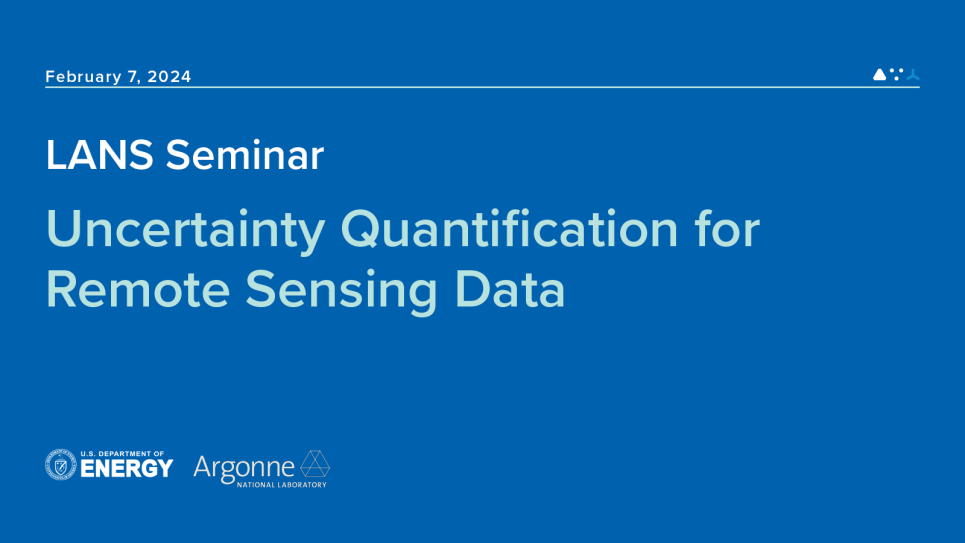
Uncertainty Quantification for Remote Sensing Data
Remote sensing data sets produced by NASA and other space agencies are a vast resource for he study of climate change and the physical processes which drive it. However, no remote sensing instrument actually observes these processes directly; the instruments collect electromagnetic spectra aggregated over two-dimensional ground footprints or three dimensional voxels (or sometimes just at a single point location). Inference on physical state based on these spectra occurs via a complex ground data processing infrastructure featuring a retrieval algorithm, so named because it retrieves latent true states from spectra, which typically provides point estimates and accompanying uncertainty or quality information. The method and the rigor by which uncertainties are derived varies by mission, and a key challenge is keeping up with the volume of data that needs to be processed. In fact, uncertainties on remote sensing data products are not usually based on a standard, rigorous probabilistic framework.In this talk, I will discuss our approach to uncertainty quantification for remote sensing data products for NASA's Orbiting Carbon Observatory 2 (OCO-2) mission, launched in 2014. We rely on synthetic but realistic ensembles of true state vectors and their corresponding operationally-produced retrieval estimates, to learn conditional probability distributions of true states given their estimates via Gaussian mixture regression. That relationship is then applied to actual retrieved estimates to yield potentially non-Gaussian distributions of true states conditioned on their operationally-estimated values. I will present our method, and some results for OCO-2.
Speaker Bio: Dr. Amy Braverman is a Senior Research Scientist at the Jet Propulsion Laboratory, California Institute of Technology, in Pasadena, CA. She is the Technical Group Lead for Statistical Methods and Applications in the Uncertainty Quantification and Statistical Analysis Group of the Instrument Operations and Science Data Systems Section. After graduating from Swarthmore College in 1982 with a B.A. in Economics, Dr. Braverman worked for nearly a decade in litigation support consulting. She returned to graduate school at UCLA in the early 1990's where she earned an M.A. in Mathematics and Ph.D. in Statistics. She began her career as a post-doc at JPL in 1999 and has been with the Lab ever since. Dr. Braverman's early work was in the use of data compression methods for analysis of massive data sets. As her career advanced she has worked in spatial and spatio-temporal statistics, statistical methods for the evaluation of climate models, and most recently in Uncertainty Quantification. She has been at the forefront of JPL's efforts to bring rigorous UQ to the derivation of geophysical information from remote sensing observations collected by NASA and JPL instruments. Dr. Braverman finds special satisfaction in mentoring post-doc's and young researchers to build capability in Statistics at JPL, and in collaborating with academic colleagues to connect their research, and that of their graduate students, to JPL and NASA problems.
See all upcoming talks at https://www.anl.gov/mcs/lans-seminar